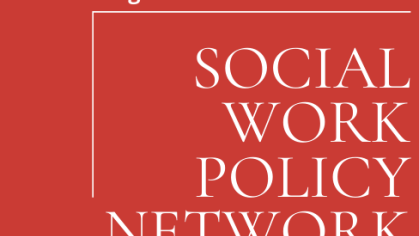By Michael Milizzo, as told to Joe Bastian
Through Rutgers School of Social Work’s MSW Fellowship in Aging offered with the MSW Certificate in Aging and Health, advanced year MSW student Michael Milizzo has focused his project work on creating trauma-sensitive counseling groups for first responders. Milizzo serves on a crisis hotline as a crisis specialist and trainer. He is looking for pathways to encourage a greater understanding of his work, the experiences of his colleagues, and to create ways for more social workers to get involved.
Milizzo sat with fellow MSW student and Certificate in Aging and Health intern, Joe Bastian, to share his experience working on the crisis hotline.
As a social work student, how has working on a crisis hotline helped you?
You learn so much practice before the theory when working on a crisis line. For instance, when I started coursework for Clinical I, I became introduced to the concept of use-of-self. This idea of using your own personality in a therapeutic way was already one of the main principles I had come to structure training around for new volunteers. They choose three words to describe their favorite aspects about themselves, and we work on how these traits can be helpful on the calls. It’s a structured way of telling a volunteer to “be yourself.” When preparing volunteers to take calls, I remind them they’re a person. It should feel like a genuine conversation between two people. Not a trained person with a script and a desperate caller. This is just one example of how the theories we learn are applied in practical ways on a crisis line.
Do many older adults call in on the suicide hotline?
Certainly. Those over 55, new to older adulthood, call often. This is anecdotal, but it’s not common to get many people a generation up, or those into their 70s.
Are there any nuances you have found working specifically with older callers?
Older men can be very socially isolated, and that can make it easy to lose perspective on things. Our brains are wired to focus on the negative, so isolation can leave us alone in an echo chamber of negativity. I think older generations have different attitudes toward mental health and vulnerability in general. There is a lot of guilt around feelings of depression and hopelessness. That guilt leads to isolation and is why many do not reach out. Simply talking out that guilt and helping them get their feelings off their chest is immensely helpful. Most callers want to talk about things they have never discussed with another human being. Making them comfortable enough to simply state those things out loud for the first time is the essence of what we do.
The other difficulty I often hear is a lot of accumulating health issues. I think older adults might be more willing to call with things like that as opposed to depression. With physical health issues there is not a stigma of it being their fault. They may feel a loss of control, which can trigger shame and feeling like a burden. Just voicing these issues can make a huge difference.
What skills have you developed as a clinician through your work on the hotline?
Active listening is key. Outside of an imminent risk call, the most helpful thing we can do is not problem solving but being a mirror to bounce issues off, so they can see their life more clearly. Active listening helps get the other person feeling comfortable talking about their current situation. The hotline is such a good way to learn and experience that skill.
In class, we tend to think of active listening as a technique used in pursuit of problem solving, but this is different. Our natural inclination can be to want to fix things. When active listening is your goal, you get comfortable sitting in a messier space. You learn the value of just being there with a person. We are helping by reflecting what they say and helping to reframe it when needed.
What message would you like to send to other social works about your experience?
This is an incredibly rewarding experience. There are moments of real insight and transformation, getting to be with people in those moments is amazing. Our education gives us the skill of helping the whole person, and these skills are needed now more than ever, especially during the pandemic when the volume of calls has skyrocketed. The idea of having a bad call can be scary. Remember that your goal as a hotline responder is not having a good or bad call, your goal is just to be the best mirror and listener you can be.
________________________________________
If interested in volunteering, the National Suicide Prevention Lifeline has five centers around New Jersey. Find a location closest to you.
If people are thinking about suicide, they should call 1-800-273-8255 (National Suicide Prevention Lifeline) any time, 24/7. Spanish speakers can call 1-888-628-9454. For any other mental health issues or just to talk to a trained listener, call CONTACT at 609-896-2120 or 609-585-2244 during the hours of 9am-9pm (every day).



